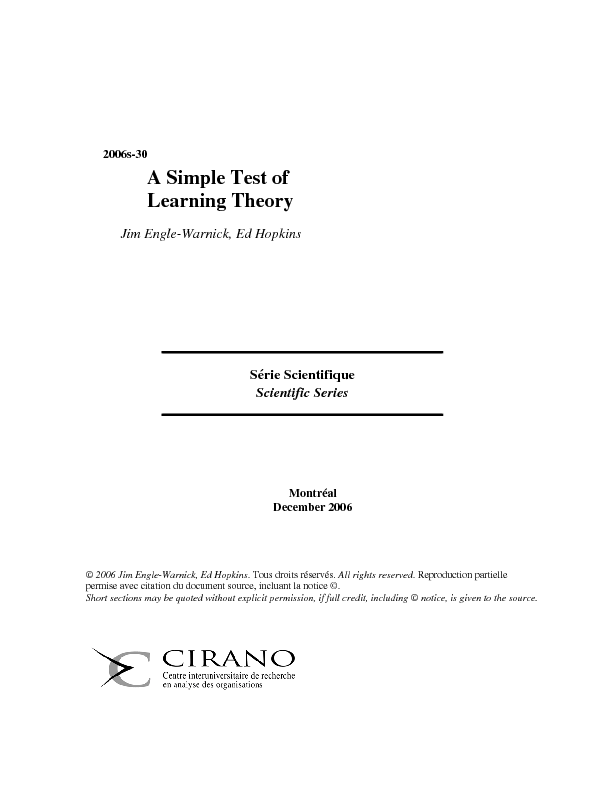A Simple Test of Learning Theory
We report experiments designed to test the theoretical possibility, first discovered by Shapley (1964), that in some games learning fails to converge to any equilibrium, either in terms of marginal frequencies or of average play. Subjects played repeatedly in fixed pairings one of two 3 ´ 3 games, each having a unique Nash equilibrium in mixed strategies. The equilibrium of one game is predicted to be stable under learning, the other unstable, provided payoffs are sufficiently high. We ran each game in high and low payoff treatments. We find that, in all treatments, average play is close to equilibrium even though there are strong cycles present in the data.
[ - ]




